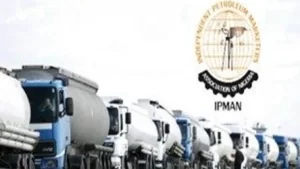The expansion plans for modular refineries in Nigeria, which are part of efforts to cut billions of dollars from the country’s annual import bill, have hit a snag, according to BusinessDay, due to a lack of critical feedstock to run their operations.
Nigeria has long advocated for the development of modular refineries due to a lack of conventional refineries in Sub-Saharan Africa in addressing the petroleum product deficit.
The then-Department of Petroleum Resources granted over 30 modular refinery licenses in 2015. (now the Nigerian Upstream Petroleum Regulatory Commission).
However, only Edo Refinery and Petrochemical Limited (6,000 barrels per day), Niger Delta Petroleum Resources Ltd’s Ogbele Refinery (11,000 bpd), and Waltersmith Petroman’s modular refinery (5,000 bpd) operate efficiently.
These three refineries, along with other smaller refiners, are having difficulty finding crude to run their refineries, threatening their ability to expand operations.
“It’s difficult to talk about expansion when some modular refineries have been idle for the last six months with no idea when they will get crude feedstock,” said an anonymous modular refinery operator.
“There is no incentive to pump in more money to expand operations when current capacity is struggling to generate a return on investment,” he added.
According to BusinessDay, the Waltersmith modular refinery, which has an initial capacity of 5,000bpd, will be phased expanded to include a 20,000bpd crude oil refining facility and a 25,000bpd standalone condensate refining facility, bringing the total processing capacity to 50,000bpd.
The Edo Refinery, which has an initial capacity of 5,000bpd, also has a 15,000bpd phase 2 expansion plan, with full operations set to begin in March 2023.
Tunde Adelakun, senior energy lawyer with Aflex Energy Nigeria, accused the government of only paying lip service to modular refinery activities.
“The government’s rhetoric about modular refineries is becoming cliché. “There is no structural framework for effective crude oil supply for modular refineries; everyone is talking about the Dangote Refinery,” Adelakun explained. “It’s difficult to attract expansion investments when modular refinery operators must wait indefinitely for regulatory attention.”
According to data from Africa Oil+Gas Report, an energy intelligence publication, the newly constructed 10,000bpd capacity Omsa Pillar Astex Company Refinery in Kwale, Delta State, Nigeria, has been unable to get enough crude oil to refine because the company does not operate its own oil producing field.
“The refinery is sitting idle three months after the regulator signed off on its operating license,” the report says.
The facility passed all reliability tests and received approval from the Nigeria Midstream and Downstream Petroleum Regulatory Authority (NMDPRA) after a refinery and an efficient refinery commissioning exercise, according to documents obtained by the publication.
“It’s difficult to do refinery business with the way the regulators are currently operating,” Adelakun said.
Last September, under the auspices of the Oil Refiners Association of Nigeria (CORAN), promoters of modular refineries met with NMDPRA chiefs to express their rage and frustration.
The owners of modular refineries listed their major challenges as a lack of feedstock, a lack of foreign exchange (it costs around $40 million to set up a 10,000bpd reformer unit that can produce PMS), high license renewal fees, unusual difficulties in clearing their equipment at seaports, difficulties in accessing the president’s duty waiver for modular refineries, and the absence of rules on crude oil transaction cues.
To alleviate their difficulties, they requested that the Central Bank of Nigeria and the Nigerian National Petroleum Company extend to them all incentives and assistance given to the Dangote refinery.
CORAN secretary Olusegun Ilori, who presented the group’s position, urged the authority to ensure that all incentives given to Dangote refinery were extended to other refineries.
According to industry insiders, the volumes of production lost due to oil theft and production shutdowns could put a significant dent in the required volumes for local refiners.
Oil companies operating in Nigeria lost N803 billion in crude oil due to spills suspected to be caused by sabotaged pipelines and operational issues in 2022, the most in three years, according to data from the National Oil Spill Detection and Response Agency.
According to Ayodele Oni, an energy lawyer and partner at Bloomfield Law Practice, Nigeria already has a mechanism in place to deal with the problem.
“Actually, the Petroleum Industry Act empowers the commission (NUPRC) to make regulations requiring crude producers to reserve some crude for the domestic market, implying that it will be refined locally,” he explained.
“The commission simply needs to take that daring step. Some marginal field production that is not already under crude sale/handling may also fall into this category.”
Section 109 of the Petroleum Industry Act states that, subject to subsection (2), the supply of crude oil and condensates for the domestic market must be on a willing supplier and willing buyer basis.
The commission may issue regulations or guidelines on the mechanism for imposing a domestic crude oil supply obligation on lessees of upstream petroleum operations, including applicable penalties, according to the statement.






